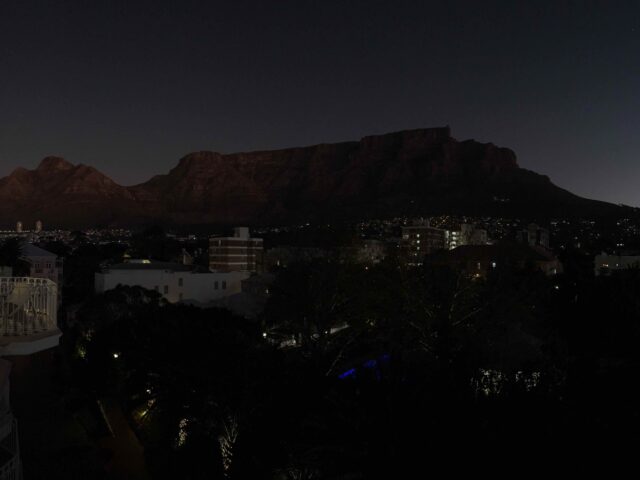The once electricity-rich nation of South Africa is suffering its worst year of power outages yet, as the country plunges into its deepest energy crisis ever, with state utility Eskom declaring “Stage 6” load-shedding this week.
According to Ferial Haffajee of the Daily Maverick, South Africa has suffered nationwide power outages for roughly 100 out of the 260 days of the year thus far, nearly 40% of the calendar year, making 2022 the worst year for power outages.
She notes:
Just before 4 am on Sunday, 18 September, Eskom CEO André de Ruyter’s phone rang. It was his COO Jan Oberholzer warning that red lights were flashing across the power grid and that diesel reserves that keep emergency power going were running lower at Ankerlig, one of two gas turbine power plants keeping the lights on as the coal-fired fleet is in its death throes.
They pressed the button on Stage 6 (switching off or load shedding 6000 MW of electricity). So South Africans woke up to advanced power cuts that can see you lose grid electricity three times a day and more often in parts of Johannesburg where the lights go out for longer blocks of time. (Cape Town has to date generally experienced less severe cuts because of the Steenbras Dam hydro-energy facility but is also now on Stage 6.)
…
The [opposition] DA [Democratic Alliance] has said President Cyril Ramaphosa should cut short his trip to the US and Queen Elizabeth’s funeral on Monday to lead South Africa through its umpteenth power crisis. In September 2015, Ramaphosa (then deputy president) said it would take 18 months and two years for the country to deal with its energy crisis.
Load-shedding means that electricity will be unavailable except to those wealthy enough to afford diesel generators or alternative energy sources such as solar power. The price of diesel, like the price of other fuels, has soared on worldwide markets in recent months, making the cost of load-shedding ever greater. Moreover, the constant switching on and off of power causes wear and tear on energy infrastructure to accelerate, making the crisis worse. And consumers who have crucial appliances plugged in when the power comes back on — such as mobile phones — often see those devices destroyed by power surges.
For the past decade, Eskom — which provided cheap and abundant power 20 years ago — has forced South Africans into darkness. The causes: aggressive affirmative action policies that pushed out skilled white engineers; politicized hiring processes that saw top jobs filled by ruling party cronies rather than qualified executives; and corruption that saw the company stripped of money and resources.
The country’s leaders are scrambling to privatize municipal power generation and to build new power plants. However, while South Africa has nuclear energy technology and an abundance of coal power, it is a signatory to the Paris Climate Accords, and international investors and donor countries are primarily interested in funding renewable power sources, which are several years away from being reliable alternatives.
The ruling party, the African National Congress (ANC), could lose significant support in the next general election in 2024 as a result of the power cuts. However, the opposition is fragmented and the leading opposition party is still relatively small — at best, achieving half the ANC’s poll result in the 2021 municipal elections.
The ANC frequently uses race, and accusations of racism, to cement its political position and to discourage voters from choosing the opposition, which attracts a disproportionate number of voters from white and other minority populations.
Joel B. Pollak is Senior Editor-at-Large at Breitbart News and the host of Breitbart News Sunday on Sirius XM Patriot on Sunday evenings from 7 p.m. to 10 p.m. ET (4 p.m. to 7 p.m. PT). He is the author of the recent e-book, Neither Free nor Fair: The 2020 U.S. Presidential Election. His recent book, RED NOVEMBER, tells the story of the 2020 Democratic presidential primary from a conservative perspective. He is a winner of the 2018 Robert Novak Journalism Alumni Fellowship. Follow him on Twitter at @joelpollak.

COMMENTS
Please let us know if you're having issues with commenting.